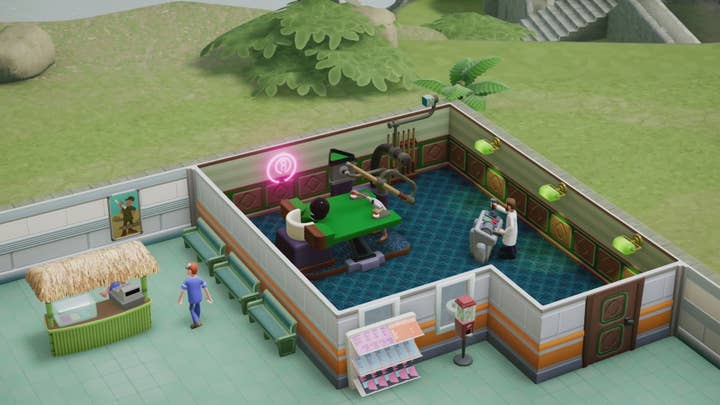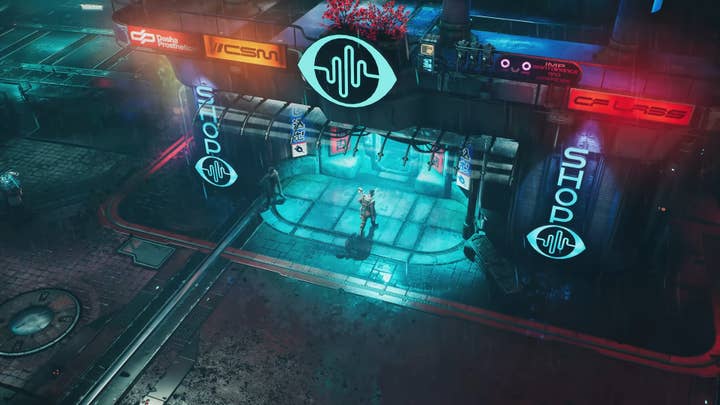How to get better game capture for your trailer
Specialists from The Trailer Farm share tips for getting great quality footage out of any game
What’s the difference between a good gameplay trailer and an award-winning gameplay trailer? Outstanding capture. Creating game trailers is no easy task; it’s a team effort that demands ingenuity and creativity at all stages.
We have worked on trailers for games such as Alan Wake Remastered, Project Zomboid, The Ascent, and PUBG. Here's our top tips for getting great quality footage out of any game, regardless of your expertise.
Tip 1: Truly understand the game
Before capture starts, it’s essential to have a solid understanding of the game mechanics and the overall objective. Be sure to spend some time experimenting and owning how the game works. New ideas will come to mind playing with the game’s boundaries.
Some genres require a bit more of a core understanding than others. Simulator or strategy style games have the most challenges out of all the genres, as there's usually a lot to learn before we even get into capture sessions. Strategy games are full of different army units and tactics that all do lots of different things, so we first have to have a good playthrough to get to grips with how everything works.
Before capture starts, it’s essential to have a solid understanding of the game mechanics and the overall objective
Genres that are inherently more complex are more challenging to capture. For example, simulators like city-building games are quite tough as there's lots of things to consider under the hood. On a recent project, we had to create a city specifically for capture – which was tricky as the city had to also function reasonably well to prevent the little people in the city getting angry and moving out, causing buildings to look abandoned or empty on the capture camera.
Sports games can also be particularly challenging to capture. You have to teach yourself the rules of the sport before beginning capture to ensure resulting footage makes sense, which is super time consuming. Not to mention the fact that sports games are quite random, and require a lot of setup for essentially a one take shot.
Objectives wise, there are many questions to consider:
- What is the key message/audience you would like to reach with this trailer?
- Are there any features that are significantly important to convey?
- Are there any gameplay aspects you don't want to show off?
It’s vital that everyone is clear on the strategy before production to ensure everyone knows the objective.
Think about the intentionality of each shot. Each shot needs to be illustrating something new, whether that's a mechanic, an area, an enemy or a weapon. Planning ahead with a shot-list is vital in saving time and keeping the project focused.
Tip 2: Composition
Game capture is far more than just demonstrating how a game works – it’s a genuine craft that demands creative knowledge of cinematography and choreography. It is essential to be aware of composition, lighting, pacing, leading the eye and make sure you know what it is you want to create with a consistent continuity.
If we had to give advice to someone looking to get into game capture, it would be plan your shots beforehand. Have a clear understanding of what you want, before you press record.

Also, learning about film theory and what makes a shot look good is vital. A basic understanding of flow with editing is a massive help, knowing what connects shots together can help yourself or your editor out massively. Immersing yourself in watching trailers is a huge factor in understanding what works. In fact, I’d say that watching lots of trailers is the best way to learn (and it's free).
Your tools are also crucial in achieving the right capture. For game capture there are plenty of free tools to use (such as OBS), which offer great quality options. On the edit side, Final Cut, Adobe or DaVinci are the best programs to jump into.
Tip 3: Smooth movements
Make sure camera movements are as smooth as possible; if using a mouse and keyboard is too jittery, use a gamepad. Smooth camera movements take practice and patience to master. Steady, dynamic camera movements (avoiding sharp, sudden turning) is crucial for that professional feel.
Game capture is far more than just demonstrating how a game works – it’s a genuine craft that demands creative knowledge of cinematography and choreography
If possible, adding camera ease/damping can be incredibly helpful for this making the final result look cinematic and well-made.
Game capture at some points is also about working with what you’ve got. You often work with game builds that are pre-release versions, bits are still being added to the game. We can sometimes run into bugs and glitches, and need to make sure what's seen in the frame is in a finished state and not a work in progress. Keeping these challenges in mind will ensure you’re fully informed before capturing for a project.
Tip 4: Always get B-roll
As well as capturing the main golden moments of the game, it can also be incredibly useful to capture as much B-roll footage as possible, filming multiple angles and takes so the editor has lots to play with.
When experimenting with the game, we recommend occasionally starting a random recording to help bolster the amount of footage available. Even if such footage is unusable, these moments can spark new ideas, or simply added to a video blockout as placeholder for a more refined idea later in the edit. Typically the more footage to work with, the better.
Tip 5: Invest in yourself
With an infinite amount of resources available online, there’s never been a better time to invest in yourself and have your work be seen globally. Many people out there will already have what they need to get into capture.
You can literally get started with capture with just a PC, plus OBS is a great free tool to use to get started in gathering clips. If you get stuck there are loads of free resources out there to help you understand what makes something look epic.
Watch lots and lots of game trailers to get an idea on how they work, then go off and record shots in your favourite games. Many games offer freecam or no HUD options, giving awesome opportunities to really get stuck in.
Robbie Palmer is creative producer as cinematic creation firm The Trailer Farm. Tom and Jack Cotton are the studio’s game capture specialists.
